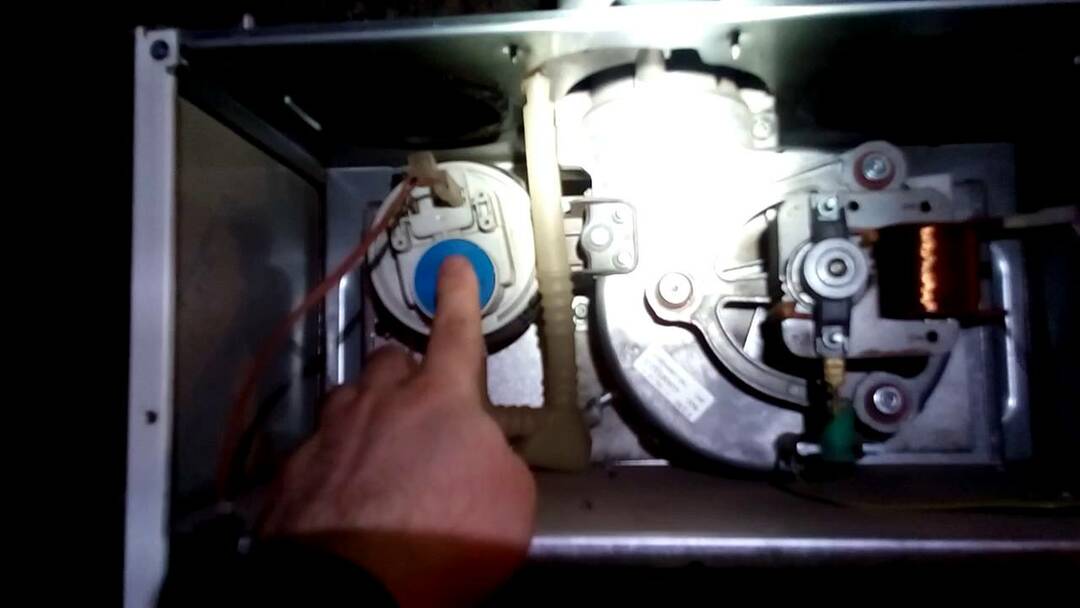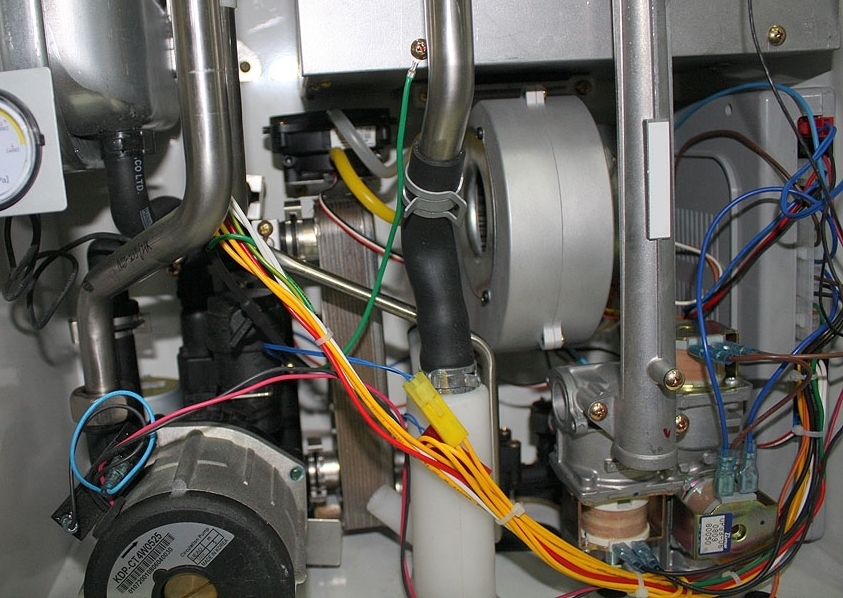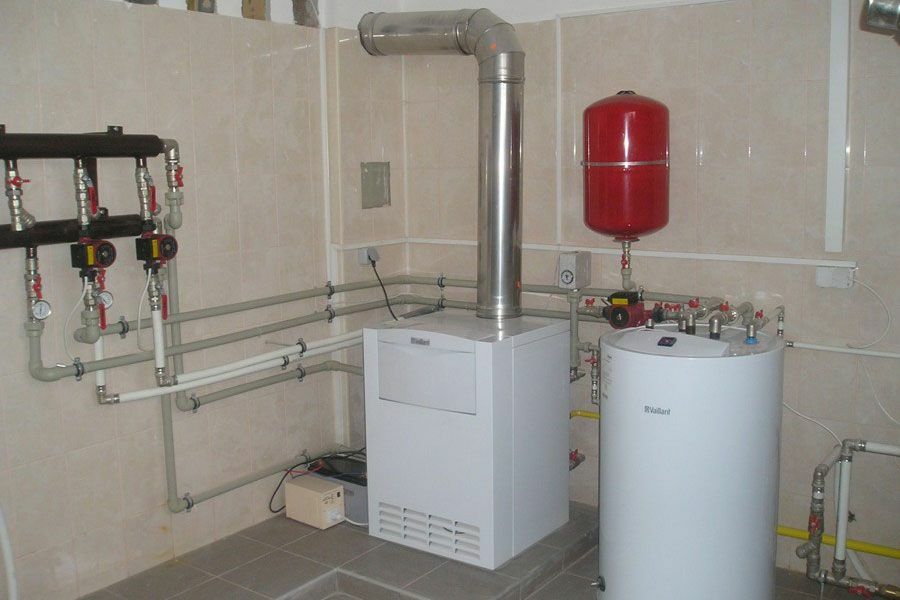Water is often used in an autonomous heating system. However, in some cases, a special antifreeze is used as a coolant. Is it worth paying attention to a similar substance or water is still the best heating medium for the heating system?

Content:
- What is antifreeze? ↓
- Composition ↓
- Advantages and disadvantages ↓
- Antifreeze or water? ↓
- Views ↓
- In what cases cannot be used? ↓
- How to choose? ↓
- How to do it yourself? ↓
- How to add antifreeze to the heating system? ↓
- Tips & Tricks ↓
What is antifreeze?
Antifreeze, which is not used as a coolant, but as a coolant, has received its the name is also due to one special quality - it does not freeze at temperatures below 0 degrees Celsius. This substance, which is created by mixing certain chemical elements, also has other beneficial qualities, which we will consider below.
Composition
Having touched on the composition of antifreeze, we note that different manufacturers use different substances in their production. The main thing is that all elements of the composition must be non-toxic. The Russian manufacturer uses food-grade propylene glycol as the basis for creating an antifreeze called "Warm House".

Advantages and disadvantages
The case of using such a substance has the following advantages:
- If the ambient temperature drops significantly, the energy carrier does not need to be drained. This feature will allow you not to worry about the need for periodic heating of the room during departure.
- Additives are usually added to antifreeze, which prevent the formation of blockages, prevent metal corrosion, and so on. In addition, additives are able to extend the life of all elements of the system that are subject to wear.
The negative side of the use is the following:
- Propylene glycol, which is not food grade, is found in many antifreezes. During a leak, this substance releases harmful vapors into the air.
- Almost all non-freezing points for an autonomous heating system have a viscosity index that exceeds the corresponding indicator of water by 20%. This feature causes an increase in the load on the entire system. That is why the power limit of the installed pump should be taken into account.
Increased consistency can be corrected by diluting the antifreeze with water. This also increases the heat transfer rate. It can only be diluted with bottled water, since ordinary water contains a large amount of zinc salts, which lead to the formation of salts on the walls of the heating system elements.

Antifreeze or water?
Antifreeze is recommended for use in the following cases:
- If you have free funds, you can use a similar coolant, which will help extend the life of the entire system.
- If the house does not live permanently or a long absence is possible, then the system can be secured with the help of an anti-freeze coolant.
- If the pipes are made of iron, then it makes sense to use antifreeze that has anti-corrosion additives.
In general, we can say that there is no reason to refuse antifreeze, except for the emergence of additional costs.
Views
When choosing an anti-freeze liquid, special attention should be paid to the composition of such a substance. Indeed, in some cases, chemical compounds are used that, when evaporated, can be harmful to humans.
By the type of the main substance, the following kind of classification can be carried out:
- Ethylene glycol is the most widespread. Its peculiarities include the fact that the substance used in its manufacture is very toxic: if it gets on the skin, it causes burns, and it is poisonous when evaporated. That is why many people reduce its concentration by diluting it with water.
- Propylene glycol - not as toxic as the previous version. In its manufacture, food additives are used that do not harm human health in any form.
In both cases, various additives can be included in the composition. Therefore, the second type can also become toxic if the manufacturer uses substances harmful to humans as additives.
In what cases cannot be used?
Manufacturers of antifreeze liquid for autonomous heating systems are spreading information about the advantages of their product. However, no one specifies in which cases antifreeze cannot be used in the system.
It is prohibited to use antifreeze in the following cases:
- In a two-circuit system, when it is possible to mix antifreeze into the water. The probability that, due to the wear of some elements of the boiler, the non-freezing liquid will enter the water supply system is high. At the same time, it will be difficult to immediately notice the presence of an impurity. Such an incident can lead to very dire consequences.
- Open heating systems are also not designed for such a coolant, since it can evaporate and release toxic fumes.
- Galvanized pipes can change the chemical properties of the antifreeze used.
- The help pump is not suitable.
- The heat capacity of the non-freezing liquid is much higher, therefore, radiator batteries designed for high system power are needed.
In addition, it is recommended to initially study the recommendations for use and composition, since the features of use may also be indicated there.

How to choose?
The main selection criteria are the following:
- First you need to understand the specifics of the working environment. When choosing, it is important to know what material the pipes and other elements of the system are made of.
- The type of fuel used for heat transfer also plays an important role.
- The low temperature limit at which the coolant can be used: the larger it is, the more expensive and, as a rule, the more toxic the substance.
- The type of substance that was taken as a basis for the manufacture.
- The presence of additives and their purpose.
You can also pay attention to which company acts as a manufacturer. A Russian product called "Warm House" is quite popular. The cost of a 10 liter canister is about $ 30. The same product from Clariant, located in Germany, costs $ 150.
The only significant difference between them is that the product of a German company is recommended for use in many foreign-made boilers. Therefore, in this case, the price depends on the reputation of the manufacturer.
How to do it yourself?
Given the very high cost, despite the long service life (10-20 years), many are attracted by the possibility of creating such a substance with their own hands. However, it is not so easy to make this substance, therefore, the main substances that make up the composition are not freely available. Therefore, you can dilute the purchased concentrate with your own hands.

How to add antifreeze to the heating system?
Often, the manufacturer places instructions for use on the label. If it is not there, you can use the following recommendations:
- First, you should clarify whether the purchased product is in a diluted or concentrated state. If it is a concentrate, dilute it as recommended.
- Fill should be carried out gradually or in stages. This is due to the fact that such a substance has a much lower surface tension coefficient. Under these conditions, all tiny cracks will leak.
- It is necessary to observe safety precautions and exclude contact with the skin.
In addition, do not forget that the viscosity of the non-freezing liquid is much higher, as is the load on the pump. Therefore, it cannot be poured.
Tips & Tricks
The main feature according to which manufacturers recommend using antifreeze is its rather long service life. However, when considering such a recommendation, you should consider:
- Non-freezing liquid must not be brought to temperatures close to boiling.
- If you heat it up to 175 degrees Celsius, most of the elements that make up the composition will decompose, which will lead to the formation of soot, scale, decay products.
- Constant strong changes in ambient temperature from minus to plus indicators also negatively affect the service life.
That is why good fluid circulation should be ensured. If there is no pump in the system, then there is a risk of the antifreeze boiling. The average service life, subject to the manufacturer's requirements, is 20 years.


